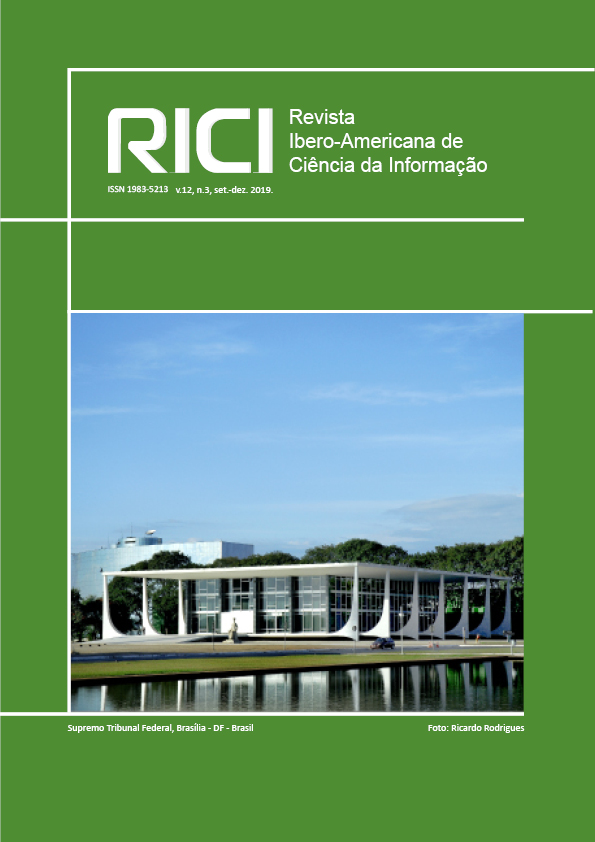Mulheres e mães do Bolsa Família: acesso à informação, empoderamento e cidadania em três comunidades de Sergipe
DOI:
https://doi.org/10.26512/rici.v12.n3.2019.26763Palavras-chave:
acesso à informação. Empoderamento. Cidadania. Programa Bolsa Família. políticas públicas de gênero.Resumo
O objetivo deste trabalho é apresentar o modelo metodológico INFORMENTO (Acesso à Informação e Empoderamento para a Igualdade e a Cidadania), desenvolvido na investigação Mulheres e mães do Programa Bolsa Família: acesso à informação, empoderamento e cidadania. Um estudo de três comunidades de Sergipe (2017) para analisar as entrevistas qualitativas. A investigação toma como ponto de partida as mudanças ocorridas na sociedade em geral, e nas mulheres em particular, desde a criação deste programa social pelo ex-presidente Luiz Inácio Lula da Silva, em 2003, que tinha como meta reduzir os efeitos da pobreza extrema no Brasil. Dessa forma, INFORMENTO consiste na combinação dos modelos metodológicos IDEIAS (Inclusão Digital e Educação Informacional para a Saúde) e AURA (Autorreforço Acompanhado). O primeiro permite construir as bases para a Alfabetização Informacional por meio dos indicadores que abordam o desenvolvimento de habilidades e competências no uso da internet como aprendizagem para a vida. Já o segundo modelo permite acompanhar o processo de empoderamento das mulheres em projetos de desenvolvimento por meio da criação de indicadores sociais em contextos específicos. Com a combinação de ambos foi possível averiguar ao mesmo tempo os conhecimentos informacionais e o processo de empoderamento e mensurá-los por meio dos níveis de ‘saber’, ‘fazer’, ‘ter’ e ‘poder’. A pesquisa concluiu que o acesso a uma renda mensal como o Bolsa Família foi importante para que as mulheres entrevistadas pudessem acessar outros dispositivos da vida social e democrática como educação e saúde e, assim, construir e exercer a cidadania. Logo, foi um fator de empoderamento devido à abrangência de atuação institucional. No entanto, as conclusões também apontam a necessidade de desenvolver formação em ‘Alfabetização Informacional para o empoderamento’ como uma forma de contribuir para a autonomia, desenvolvimento e qualidade de vida das mulheres.
Downloads
Downloads
Publicado
Como Citar
Edição
Seção
Licença
Notas de direitos autorais
Autores que publicam nesta revista concordam com os seguintes termos: Autores mantém os direitos autorais e concedem à revista o direito de primeira publicação, com o trabalho simultaneamente licenciado sob a Creative Commons Attribution License 4.0, permitindo o compartilhamento do trabalho com reconhecimento da autoria do trabalho e publicação inicial nesta revista. Autores têm autorização para assumir contratos adicionais separadamente, para distribuição não-exclusiva da versão do trabalho publicada nesta revista (ex.: distribuir em repositório institucional ou publicar como capítulo de livro), com reconhecimento de autoria e publicação inicial nesta revista. Autores têm permissão e são estimulados a distribuir seu trabalho online (ex.: em repositórios institucionais ou na sua página pessoal) a qualquer ponto antes ou durante o processo editorial, já que isso pode gerar alterações produtivas, bem como aumentar o impacto e a citação do trabalho publicado.
















